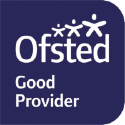Business
Contact
Head of Business Studies - Mr D Petrie
Subject Overview
In the Business department, we believe in the importance of understanding the world in which we live. We aim to equip our Business Studies students with the essential knowledge needed for when they leave education and enter the workplace. Students will have the opportunity to understand the different functional areas as well as the external influences that determine whether a business will be successful or not. Pupils will develop their application, analytical and evaluation skills by linking their business knowledge to a range of up-to-date scenarios that encourage debate and provide opportunities to justify their points of view.
As well as what they learn in the classroom, we believe it is important to put this knowledge into practice. Therefore, our students have the opportunity to run their own business, enabling them to develop a range of enterprise skills such as communication, problem solving and creative thinking. We also bring in guest speakers to discuss their own personal experiences in the workplace as well as organising a trip to a business so they can see how it is applied in reality.
Click here to view the Curriculum Overview
Key Stage 4 Overview
For this course, students apply their knowledge and understanding to different business contexts ranging from small enterprises to large multinationals and businesses operating in local, national and global contexts. Students develop an understanding of how these contexts affect business behaviour.
Students will apply their knowledge and understanding to business decision making including:
- The interdependent nature of business activity
- Influences on business
- Business operations
- Finance
- Marketing
- Human resources
Students will determine how different business contexts affect business decisions. Student will be able to interpret and analyse quantitative and qualitative data in making business decisions. It will be assessed over two examination papers lasting 1 hour 45 minutes each and will include MCQ, 2,3,4,5,6,9 and 12 mark questions.
This course gives our students the opportunity to develop sector-specific knowledge and skills in a practical learning environment. The main focus is on the knowledge, understanding and skills required to research, plan, pitch and review an enterprise idea that includes:
- Development of key skills that prove aptitude in planning an enterprise activity, including market research, planning, carrying out financial transactions, communication and problem solving
- Knowledge that underpins effective use of skills, such as the features and characteristics of enterprises and entrepreneurs, and the internal and external factors that can affect the performance of an enterprise
- Attitudes and ways of working that are considered most important for enterprise, including monitoring and reflecting on performance of an enterprise idea and own use of skills.
To achieve this, it is broken down into three components:
- Component 1: Examine different local enterprises to develop their knowledge and understanding of the characteristics of enterprises and the skills needed by entrepreneurs.
- Component 2: Select an idea for a micro-enterprise activity to plan and pitch. They will individually pitch their business plan for their idea to an audience and then use the feedback to review their plan and pitch.
- Component 3: Promotion and Finance for Enterprise requires students to analyse and interpret information in relation to an enterprise and to make recommendations on strategies to use to improve the performance of the enterprise.
Key Stage 5 Overview
Students on this course will study business in a variety of contexts (eg large/small, UK focused/ global, service/manufacturing) and consider the:
- Importance of the context of business in relation to decision making
- Interrelated nature of business activities and how they affect competitiveness
- Competitive environment and the markets in which businesses operate
- Influences on functional decisions and plans including ethical and environmental issues
- Factors that might determine whether a decision is successful eg the quality of data and the degree of uncertainty
- Technology that is changing the way decisions are made and how businesses operate and compete
- Impact on stakeholders of functional decisions and their response to such decisions
- Use of non-quantitative and quantitative data in decision making
It will be assessed at the end of the two years over three exam papers that will each last 2 hours. The papers include a range of questions that focus on knowledge, application, analysis and evaluation skills.
BTEC Level 3 in Business Studies
Pearson BTEC Level 3 National Extended Certificate in Business/ Pearson BTEC Level 3 National Diploma in Business
These two courses provide our students with the opportunity to develop sector-specific knowledge and skills in a practical learning environment. The National Extended Certificate is the equivalent of 1 A-Level and will be assessed through both internally and externally:
- - Unit 1 – Exploring Business (Internal)
- - Unit 2 – Developing a Marketing Campaign (External)
- - Unit 3 – Personal and Business Finance (External)
- - Unit 8 – Recruitment and Selection (Internal)
The BTEC Level 3 National Diploma in Business is equivalent to 2 A-Levels, so students are to complete the units above as well the following 4 units:
- Unit 4 – Managing an Event
- Unit 5 – International Business
- Unit 6 – Principles of Management
- Unit 19 – Pitching a New Business


